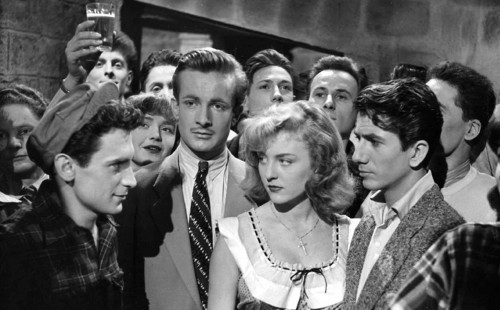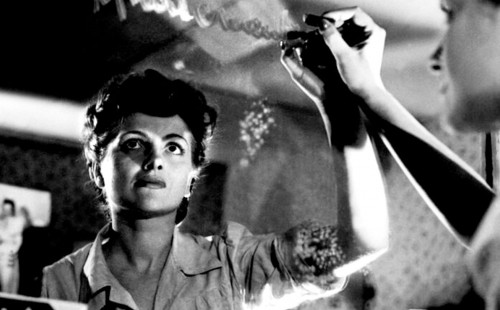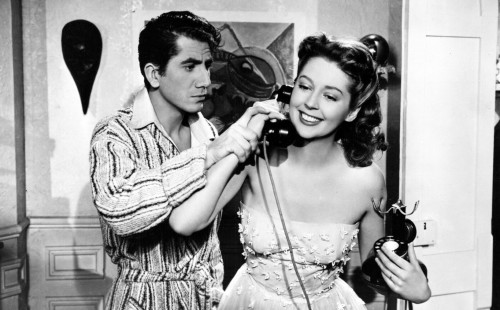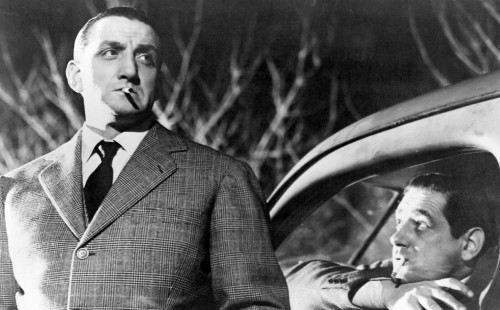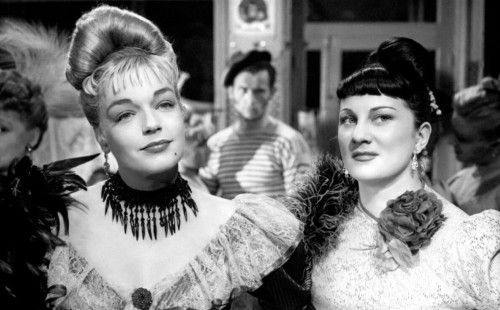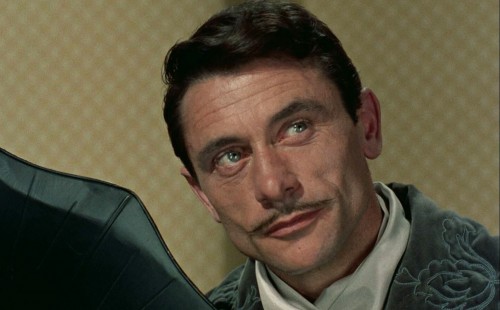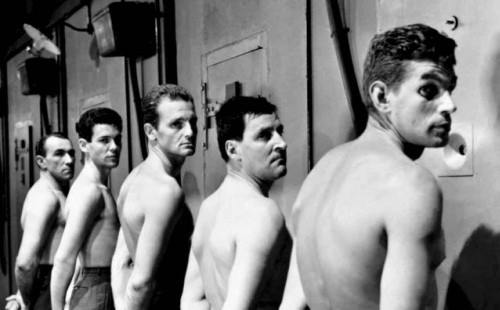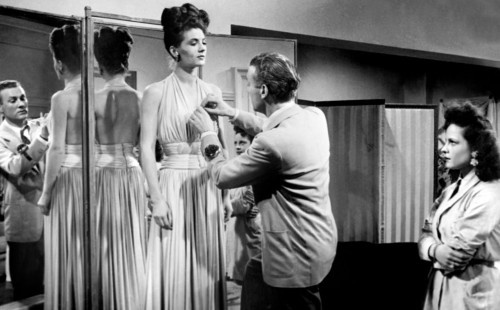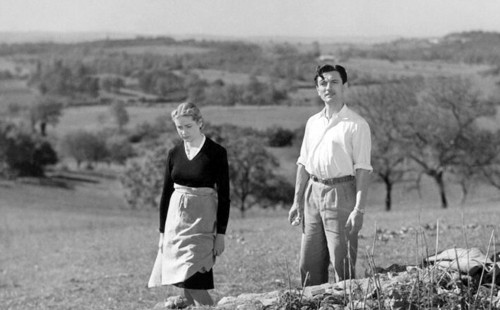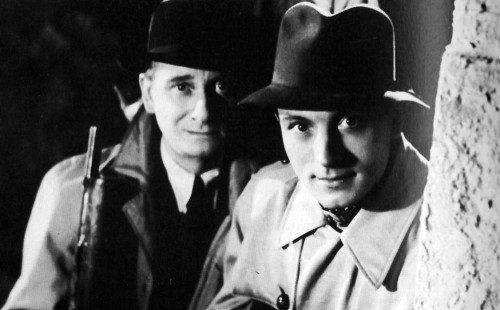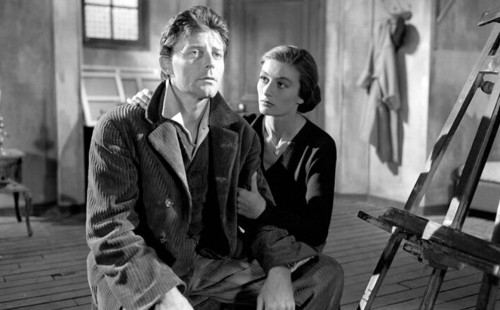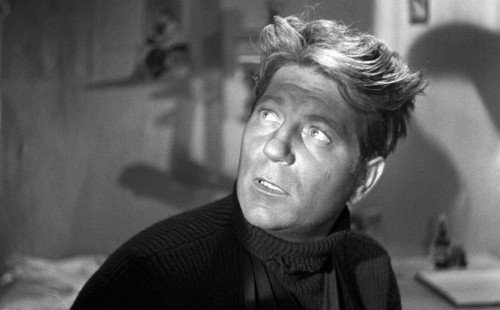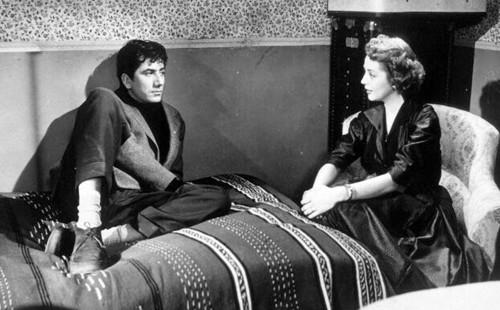JACQUES BECKER
Through Thursday, August 16
Assistant to Jean Renoir during his greatest years, Jacques Becker (1906-1960) perhaps outdid his mentor in versatility, from his Parisian “youth trilogy” (Antoine and Antoinette, Rendezvous in July, and Édouard and Caroline) to vintage French Noir and the toughest of prison films, effortlessly using long takes, bullet-quick cutting, exhilarating location shooting, slices of life, and inevitable melodrama – with a warmth and zest for people throughout.
Presented with support from The George Fasel Memorial Fund for Classic French Cinema
Programmed by Bruce Goldstein
Reviews
“Becker saw like no other filmmaker. He created entire worlds from the smallest details. Often fixated on process, Becker could turn the most mundane, unremarkable bits of work into hypnotic cinema… Jacques Becker stands as an old-wave craftsman with a new-wave spirit. His early death deprived us of a cinema that was sure to continue developing and expanding, but we should be grateful for what we have. His status as a master is secure.”
– Bilge Ebiri, The Village Voice
“AN ESSENTIAL FRENCH MASTER.”
– Joshua Rothkopf, Time Out
“Whether it was the period drama, Casque d’Or of 1952, the 1954 aging-gangster picture Touchez Pas au Grisbi, or the prison-break movie Le Trou, [Becker’s] pictures always felt authoritative to the point of being definitive.”
– Glenn Kenny, The New York Times
“[Becker’s] films are marked by the tensions of his times no less than by his own idiosyncratic passions; his personal vision converges with political and cinematic history in exemplary ways. By putting these rare films on view, Film Forum re-inaugurates itself with a display of its own centrality to current movie culture… The defining word of Becker’s career would be ‘elegance,’ but he approaches it as a dynamic and ironic idea, one that conveys the rigid bearing of social convention, the deft performance of a social role.”
– Richard Brody, The New Yorker
“Jacques Becker was the most reflective filmmaker of his generation, and the most scrupulous. If criticism taught him nothing, it was because he had already assessed and reassessed all the problems in his own head. For a long time he was assistant-director to Jean Renoir, who liked to let him do cameos. In Boudu, Becker, young and thin, sits on a bench, puts his head in his hands, reflects, raises his arms toward heaven and declaims, ‘Poet, take thy lute and give me a kiss.’ In Grand Illusion, he is an English officer who crushes his watch in rage rather than have it confiscated by the Germans. This is Becker as revealed by Renoir, the great revealer: restless, anguished, elegant, lyrical, nervous, tormented.”
– François Truffaut
“Becker was able to bring a fresh eye to everything he undertook... Always in his work there’s a sense of discovery, of an intent eye delighted by what it has found out.”
– Philip Kemp
“Before us, the only person who tried to see France was Jacques Becker.”
– Jean-Luc Godard
“Becker possessed a talent for elegance. He understood fashion and knew how to adapt it to his own personality. In all the ritual gestures of life he was ten years ahead of his time…When I had got past the veneer I found myself confronted by someone who was both loveable and ardent. His enthusiasm for the films which I also liked, notably Stroheim’s Greed, and above all his approach to his fellow men definitely rid me of the idea that he was a snob. He loved mankind not in any generalized, theoretical way but directly and in terms of the individual.”
– Jean Renoir
“Becker was too fond of people to present any of them as absolute villains and less inclined to attack or satirize social groups than to explore them. The imaginative sympathy with which he did this gives even the most lighthearted of his comedies value as social documents and has put some critics in mind of Balzac. Becker’s admirers believe that this, together with his technical mastery, his warm humanity and poetic power, and his great skill as a director of actors, should earn him a higher place among postwar French directors than he has so far been allowed.”
– Konstantin Bazarov

